
You fell asleep
The first spare moment you have is at 11 p.m., after homework, dinner, baths, and the kids are in bed. You’re dozing off as soon as you close your eyes — what a surprise. After 20 minutes, you wake up, feeling frustrated that it didn’t work. Don’t be mad at yourself. See slumber as a positive and healthy result. “Falling asleep during meditation is a good thing,” says Light Watkins, author of Bliss More: How to Succeed in Meditation Without Really Trying. “It shows that it’s working. Go with it.” Check out the many health benefits of meditation.
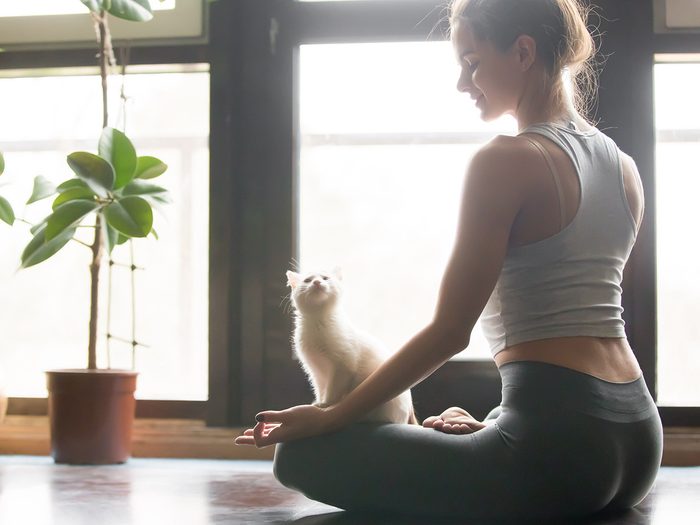
You can’t focus
Here’s the primary misconception about meditation: It’s impossible to think about nothing or completely clear your head. If your mind wanders to the laundry or work deadlines, don’t get annoyed with yourself. “It’s harder to focus than to let your mind wander,” says Watkins. But she says it’s not important how well you focus during meditation — you’ll get better at it over time. What’s important is how meditation will help you focus better at work or in a conversation, he says. “You’ll be able to focus better after you finish,” says Watkins. “Focus is a byproduct of meditation, not its means.” And you’ll reap some of yoga’s many health benefits — decreased anxiety and stress. Boost your energy levels with this five-minute meditation.
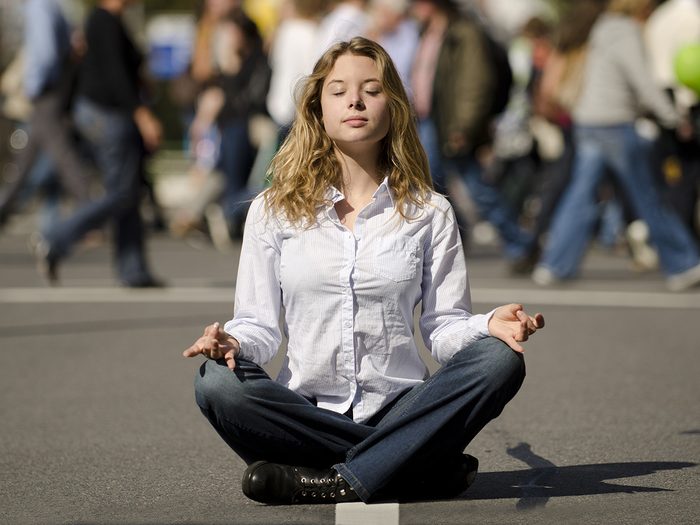
You’re forcing it
If your mind tends to go a mile a minute, sitting in silence can be downright painful. Instead of looking for a quiet place to meditate, focus on the sounds around you to bring you deeper into your awareness. “The most proficient meditators know how to meditate even with noise around them,” says Watkins. It’s worth finding a way to make meditation possible in almost any setting: An analysis of 47 studies published in JAMA found that mindfulness meditation was shown to have moderate evidence of improved pain, depression and anxiety. Here’s now practicing meditation can change your brain.
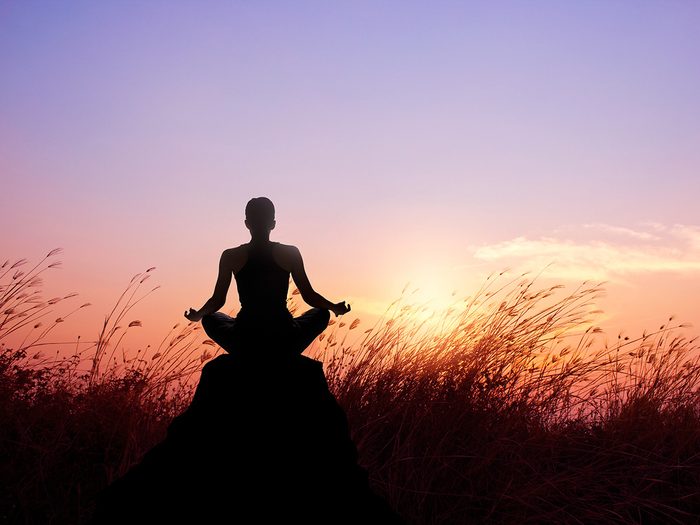
Your expectations are too high
If you’re expecting something incredible and miraculous to happen when you open your eyes, you will be disappointed. “If you haven’t done it before, don’t expect miraculous results overnight. The benefits are incremental,” says Watkins. “Set your expectations for a marathon approach, not a sprint.” Enjoy the benefits as they come, and enjoy and trust the process. It often improves your health in subtle ways: The National Center for Complementary and Integrative Health points out that meditating can lower blood pressure and ease symptoms of irritable bowel syndrome over time.
There are many benefits to practicing yoga and meditation outdoors.
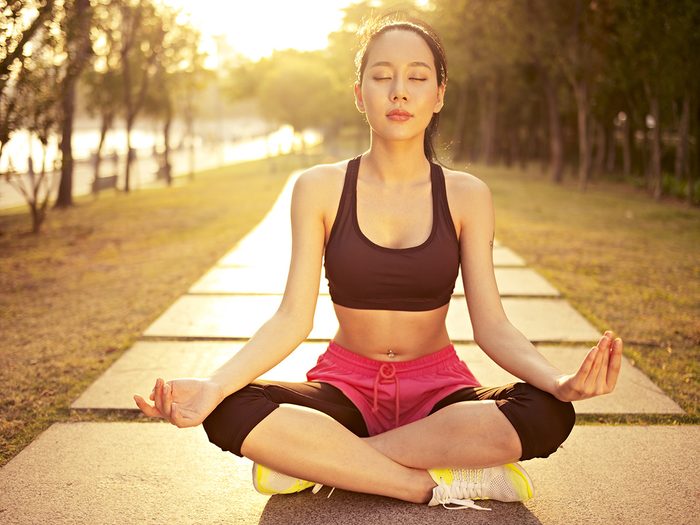
You give up too easily
Don’t give up on this powerful tool. “It’s like working out. You won’t get bigger biceps or be more fit after working out once or twice,” says Watkins. “Only over time will meditation pay off.” Daily practice helps release pressure buildup in little spurts — the kind of stress that can be debilitating if you don’t address it. And you’ll be in a better position to reap benefits like better self-awareness, reduced negativity, and increased patience, according to the Mayo Clinic.
Need help? Give these mindfulness apps a shot.
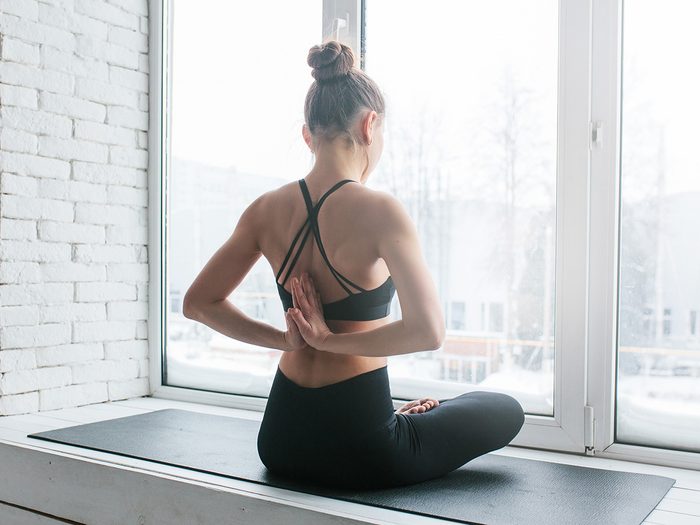
You’re inconsistent
It’s easy to fall into the trap of only meditating when you feel the need. For the best results, strive to meditate daily. “Stress doesn’t take days off,” Watkins points out. “Meditating for 10 to 15 minutes a day is better than meditating one hour every few days. You get more advantages if you’re more consistent.” Researchers published a study in Biological Psychiatry in which 35 unemployed men and women who were stressed about searching for a job began meditating. The results suggest the volunteers gained benefits within three days that continued — with regular practice — for the four months of the study. Brain scans revealed that parts of the brain that handle stress, focus, and calmness were more active, and in blood tests, the volunteers had lower levels of inflammation even four months later.

You only let yourself sit cross-legged on a cushion
If you have an ingrained image that you must sit on a cushion with candles burning around you, toss it. That’s only in the movies or for people who find that position comfortable. “People think they need to sit like a monk,” says Watkins. “Sit like you’re watching Netflix.” Sit wherever and however works best for you. “There is no right way to meditate,” says Watkins. “If you do it at the same time, using the same technique, you’ll get the effects of mediation faster. Your brain will adapt to it a lot faster.”
If you’re not big on a traditional meditation, you should try mindful walking.
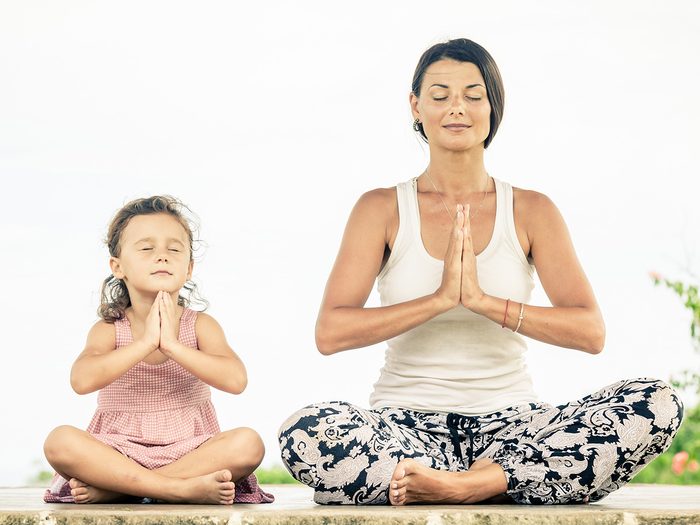
You’ll only meditate when conditions are perfect
Do you say “I’ll start meditating again on Monday?” That’s just like promising yourself to start a diet or hit the gym — tomorrow. Yes, being consistent about time and place will help you establish a habit and reap the most benefits. But you don’t have to wait until your life is perfectly in place. There’s no better time to start than now. “It’s a fantasy to think that your life will be perfect,” says Watkins. “Meditation can help create the peace that you’re looking for.”
This woman almost died in a car accident, but meditation saved her.
